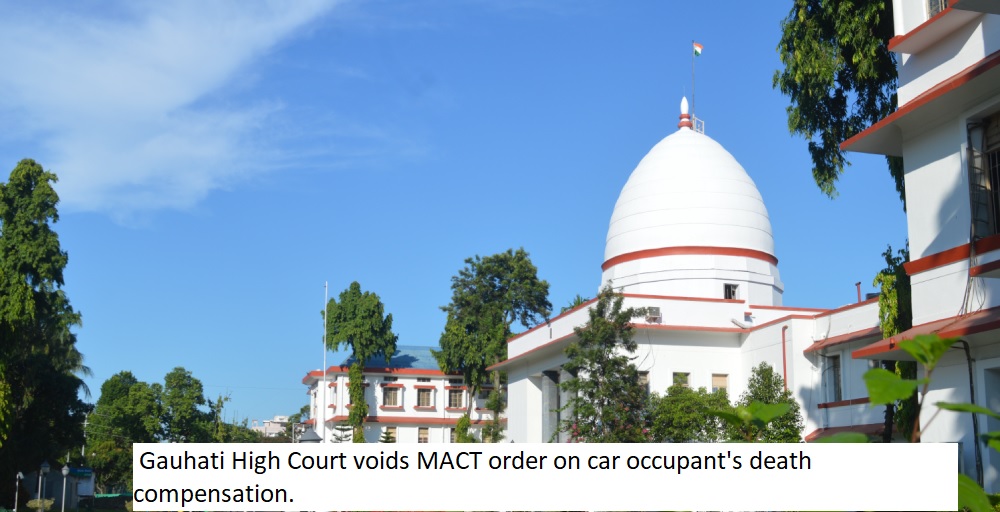


The Gauhati High Court recently delivered a significant judgment, setting aside an order issued by the Motor Accident Claim Tribunal (MACT) in a case involving the unfortunate death of an occupant in an insured vehicle due to rash and negligent driving. The tribunal's original directive mandated the Oriental Insurance Company, referred to as the "appellant" in the case, to compensate the claimant and subsequently recover the awarded sum from the owner of the offending vehicle.
Justice Mitali Thakuria, presiding as a single bench, invalidated the tribunal's order based on a crucial point—the insurance policy in question was identified as a Private Car Act Policy. This specific policy, as highlighted by the court, did not extend coverage to the risk associated with occupants. Consequently, the Insurance Company, under this policy, could not be held accountable for the payment of compensation pertaining to the death of any occupant in the vehicle.
The case's origins trace back to January 23, 2013, when the claimant and her husband were traveling from Bhaloghat to their residence. Tragically, due to the reckless and negligent driving of the vehicle's operator, a collision with a tree occurred at Tarabasa. This resulted in the claimant suffering severe injuries, while her husband succumbed to his injuries on the spot.
Subsequently, the claimant filed a petition before the Motor Accident Claims Tribunal No. 2, Kamrup, seeking compensation for her husband's death. The Insurance Company contested the case, contending that the private car policy issued did not cover occupants in the vehicle.
Despite the Insurance Company's arguments, the tribunal passed the impugned judgment and ordered the payment of Rs. 12,17,800/- with 6 percent interest from the date of filing the claim petition until realization. Furthermore, it directed the Insurance Company to disburse this amount to the claimant within 90 days from the date of the order.
Dissatisfied with the tribunal's ruling, the Insurance Company appealed to the Gauhati High Court. The counsel representing the Insurance Company emphasized that the company was not liable for compensating occupants in the private car, citing the policy's limitations.
On the other side, the claimant's counsel argued that the tribunal had rightfully applied the doctrine of pay and recovery, given the valid insurance policy in force at the time of the incident.
Upon careful consideration of both arguments, the Court acknowledged that while the policy did not cover the risk for vehicle occupants, the Insurance Company had been directed to compensate the claimant due to the policy's validity at the time of the incident. The Court referenced a Supreme Court judgment that distinguished an 'Act policy' from a 'comprehensive/package policy,' the latter covering the insurer's liability for compensating occupants in a car.
In partially overturning the tribunal's direction, the Court emphasized that the policy in question was a Private Car Act Policy, excluding coverage for occupants' risks. Consequently, the Insurance Company could not be held liable for compensating the claimant for the occupant's death. The Court set aside the part of the order requiring the Insurance Company to pay the claimant and recover costs from the vehicle owner.
Instead, the Court directed that the owner/insurer was obligated to fulfill the tribunal's award. The owner/insurer was instructed to pay compensation to the claimant by depositing the awarded amount before the tribunal within three months.
This judgment from the Gauhati High Court underscores the critical importance of the specific terms and coverage of insurance policies in determining liability in the unfortunate event of accidents, emphasizing that not all policies provide comprehensive coverage for all potential risks.
TAGS: Gauhati High Court Motor Accident Claim Tribunal Private Car Act Policy Oriental Insurance Company